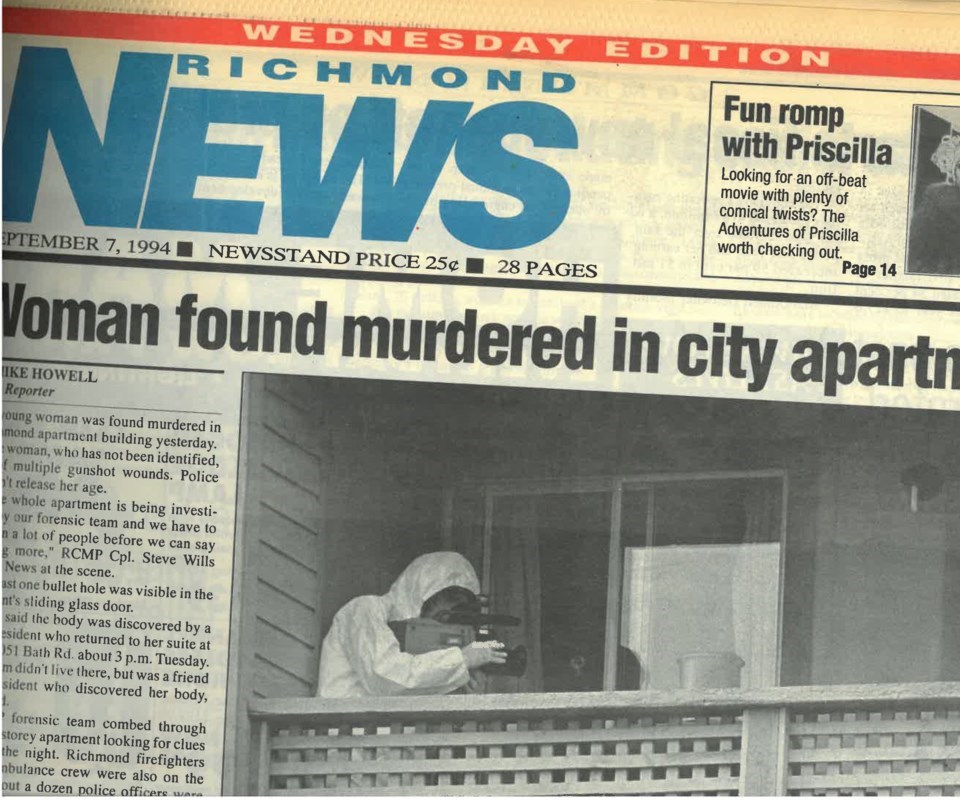A Richmond man sentenced to life in prison for the death of his common law partner will have the opportunity to appeal his conviction again at the B.C. Court of Appeal.
The Department of Justice Canada announced on Monday that a miscarriage of justice "likely occurred" in the case of William Wade Skiffington.
Hon. David Lametti, Minister of Justice and Attorney General of Canada, decided to refer the case to the Court of Appeal after a "thorough review" of the case where new information that was not available at the time of Skiffington's trial or appeal has been identified.
"It is not a decision about the guilt or innocence of the applicant, but rather a decision to return the matter to the courts where the relevant legal issues may be determined according to the law," reads the release.
According to the Department of Justice's release, determining whether a miscarriage of justice "likely occurred" requires a "close examination" of information in support of the application and an "in-depth investigation." New information that surfaces after the trial and appeal is one of the key considerations.
Back in 2001, Skiffington was convicted of second degree murder of his common law partner Wanda Lee Martin and sentenced to life imprisonment with no parole for 13 years.
Martin's death occurred in 1994 when she was found dead after being shot multiple times while visiting a friend's apartment with her toddler son. No forensic evidence linked Skiffington to the crime and the murder weapon was never found.
The Richmond News previously reported that Skiffington had returned to court in 2019 to get bail after the minister ordered a review of his case.
Skiffington's taped confession was obtained by RCMP officers in 2000, using a controversial "Mr. Big" style tactic. The tactic involves undercover officers posing as gang members and befriending a suspect by offering them "relatively easy jobs for large sums of cash."
The suspect would then be inducted into the fake gang with a meeting with the boss, Mr. Big, where they are asked to confess about a past crime so incriminating evidence can be destroyed.
Despite the taped confession, Skiffington maintained his innocence and appealed his conviction in 2004. His lawyers arguing he was pressured into confessing by undercover officers and the promise of wealth. The appeal was dismissed in the B.C. Supreme Court. He then tried to appeal in the Supreme Court of Canada in 2013, but was denied.
A 2014 Supreme Court of Canada ruling subsequently ruled that if defence lawyers can show police abused their power in obtaining Mr. Big confessions, such confessions won't be considered in court.
Skiffington then applied for a criminal conviction review in 2017 after "having exhausted all rights of appeal," and was granted bail in 2019 pending completion of the review.
Skiffington was in jail for 17 years before he got bail in 2019.
A media release by Innocence Canada in 2019 referred to police investigation in Skiffington's case as a "classic case of tunnel-vision, a known cause of wrongful convictions."
"... Police failed to pursue alternative suspects and rudimentary avenues of investigation that may well have resulted in the apprehension of the person who killed Wanda Martin," read the release.
Skiffington's lawyer, Tamara Duncan, explained in the release that the Supreme Court of Canada had recognized the Mr. Big tactic has potential to "become abusive and could produce unreliable confessions."
"Mr. Big has a unique capacity to get suspects talking but it also has a powerful potential to distort the truth and elicit false confessions," she wrote.
"This case, with such coercive tactics and so little confirmation, is an example of the technique at its worst. It’s the kind of case for which the Supreme Court of Canada formulated new legal rules in 2014."
- With files from Megan Devlin.



